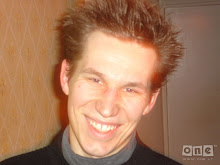
The Organic Tango Cookbook and Homer's personal philosophy...This section contains bits and pieces of basic ingredients and recipes that may help you on your road to tango self-discovery. Eventually we all must answer the question - "What is Tango to me?" -
i.e. discovering your own tango structure & style, musical taste & interpretation, social intentions & interactions, etc.
"Homer's" Philosophy:
To help build an open-minded and strong social dance community.
Offer very affordable group and private study (especially for those interested in multiple lessons) while maintaining a high standard of teaching quality.
Simply stated, Homer's three goals in life are to be a good social dancer, a good teacher of social dance and a good husband (not necessarily in that order!).
What is Organic Tango?
(Homer's long-winded version!)
Organic Tango is more of a philosophy and approach to learning and dancing tango then it is a structure or a style of dance. The need for a title of "organic" came about after over five years of involvement in the dance and trying to understand what it really meant to me. I realized that each teacher had their own interpretation of how the dance should be done (which is not necessarily a bad thing)!
What really got to me is how a few members of the tango community (teachers and dancers alike) negatively influenced the growth and interpretation of this dance in the United States. Out of my desire to discover my own tango - several key points kept making themselves more and more appearent...
To this day, there is no clear distinction between "structure" and "style." Furthermore, some folks try hard to contain tango in a box and enforce their views on others. And lastly, the lines between stage & social dancing, past & present, and the Argentine vs. non-Argentine way are not very clear and, unfortunately, on more than a few occasions - have been abused.
My reasons for using such a title (Organic Tango) will one day, hopefully, not exist and new students will just simply learn the "Tango" - or whatever our society is calling this social dance at that point (although several of us will probably be forever labeled as the "organic tango" groupies)!
Several of the main ideas behind the organic-tango-approach to learning are captured here as follows...
Organic Tango Dance Philosophy:
You own your own dancing, nobody owns the Tango.
Dance the most natural and comfortable way for your own body and that of your partner's.
Keep an open mind and respect for yourself and others.
Appreciate and learn from the past, dance in the present, and allow the future to unfold.
Some Basic Ingredients (That may or may not be present, at different degrees, in your tango - listed in no particular order!):
Posture
Grounding
Balance - on & off axis
Relaxation & Breathing
Core Movement
Elastic Energy Transfer
Linear & Torsional Energy
Impulse & Momentum Transfer
Connection
Musicality
Style
Creativity
Social Awareness
Open mindedness
Some Recipes for Learning...
"Homer's" Philosophy:
To help build an open-minded and strong social dance community.
Offer very affordable group and private study (especially for those interested in multiple lessons) while maintaining a high standard of teaching quality.
Simply stated, Homer's three goals in life are to be a good social dancer, a good teacher of social dance and a good husband (not necessarily in that order!).
What is Organic Tango?
(Homer's long-winded version!)
Organic Tango is more of a philosophy and approach to learning and dancing tango then it is a structure or a style of dance. The need for a title of "organic" came about after over five years of involvement in the dance and trying to understand what it really meant to me. I realized that each teacher had their own interpretation of how the dance should be done (which is not necessarily a bad thing)!
What really got to me is how a few members of the tango community (teachers and dancers alike) negatively influenced the growth and interpretation of this dance in the United States. Out of my desire to discover my own tango - several key points kept making themselves more and more appearent...
To this day, there is no clear distinction between "structure" and "style." Furthermore, some folks try hard to contain tango in a box and enforce their views on others. And lastly, the lines between stage & social dancing, past & present, and the Argentine vs. non-Argentine way are not very clear and, unfortunately, on more than a few occasions - have been abused.
My reasons for using such a title (Organic Tango) will one day, hopefully, not exist and new students will just simply learn the "Tango" - or whatever our society is calling this social dance at that point (although several of us will probably be forever labeled as the "organic tango" groupies)!
Several of the main ideas behind the organic-tango-approach to learning are captured here as follows...
Organic Tango Dance Philosophy:
You own your own dancing, nobody owns the Tango.
Dance the most natural and comfortable way for your own body and that of your partner's.
Keep an open mind and respect for yourself and others.
Appreciate and learn from the past, dance in the present, and allow the future to unfold.
Some Basic Ingredients (That may or may not be present, at different degrees, in your tango - listed in no particular order!):
Posture
Grounding
Balance - on & off axis
Relaxation & Breathing
Core Movement
Elastic Energy Transfer
Linear & Torsional Energy
Impulse & Momentum Transfer
Connection
Musicality
Style
Creativity
Social Awareness
Open mindedness
Some Recipes for Learning...

Komentarų nėra:
Rašyti komentarą